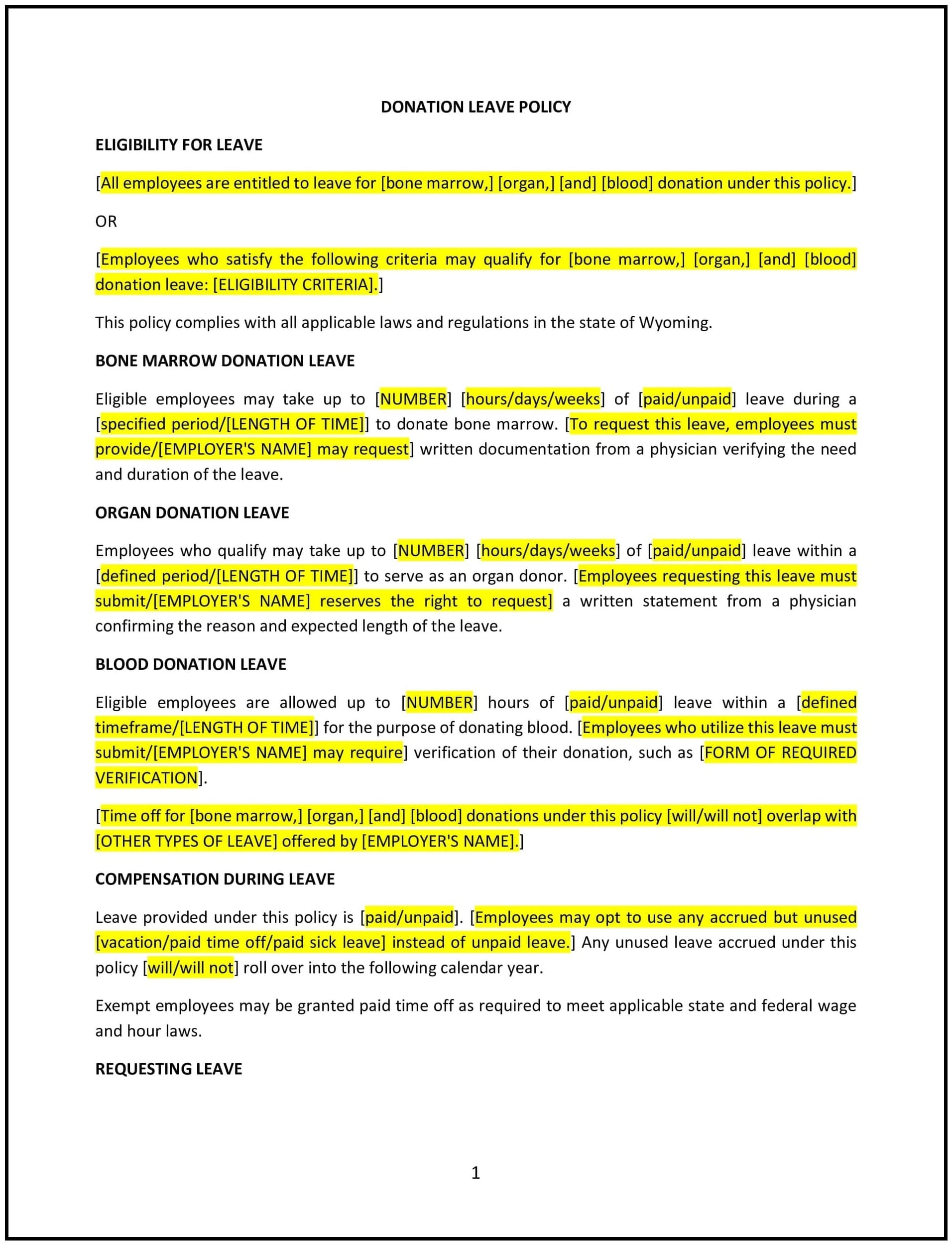Got contracts to review? While you're here for policies, let Cobrief make contract review effortless—start your free review now.

Customize this template for free
Donation leave policy (Wyoming)
In Wyoming, a donation leave policy provides employees with the opportunity to take time off to donate blood, organs, or other vital resources. This policy demonstrates a company’s commitment to supporting employee well-being and community health while aligning with Wyoming’s unique workforce needs and values.
This policy outlines the eligibility criteria, application process, and guidelines for taking donation leave, ensuring a structured approach that supports employees and minimizes workplace disruption.
How to use this donation leave policy (Wyoming)
- Define eligible donations: Specify the types of donations covered by the policy, such as blood, plasma, bone marrow, or organs. Include details about whether the policy covers live donations only or preparation and recovery time as well.
- Establish eligibility criteria: Clearly state which employees are eligible for donation leave, such as full-time, part-time, or temporary workers, and include any minimum tenure requirements.
- Outline the request process: Provide detailed instructions for employees to request leave, including notice periods, required documentation (e.g., appointment confirmation), and the approval process.
- Specify leave duration: Define the amount of paid or unpaid leave available for each type of donation, ensuring it aligns with Wyoming’s workplace regulations and the company’s operational needs.
- Ensure workplace coverage: Include guidelines for managing workloads during an employee’s absence, such as cross-training or temporary reassignment of duties.
Benefits of using a donation leave policy (Wyoming)
A well-structured donation leave policy provides several benefits for Wyoming businesses:
- Supports community health: Encourages employees to contribute to life-saving causes, fostering a positive impact on the local community.
- Enhances employee morale: Demonstrates the company’s commitment to supporting employees in meaningful personal endeavors.
- Improves retention: Shows care for employees’ well-being, increasing loyalty and job satisfaction.
- Ensures clarity: Provides clear guidelines for donation leave, reducing misunderstandings and ensuring consistent application.
- Addresses local needs: Reflects Wyoming’s community-oriented values and supports industries where health and wellness are prioritized.
Tips for using a donation leave policy (Wyoming)
- Promote awareness: Inform employees about the policy during onboarding and through regular communication to ensure they understand their options.
- Provide flexibility: Allow adjustments to leave duration or timing based on individual circumstances or medical requirements.
- Support recovery: Ensure employees have adequate time to recover after donations, especially for major procedures like organ or bone marrow donation.
- Monitor participation: Track usage of the policy to identify trends and improve its effectiveness.
- Review regularly: Update the policy to reflect changes in laws, employee needs, or best practices.